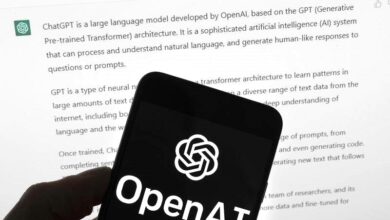Navigating the Cutting Edge: How to Stay Updated on the Latest AI Research
AI Research Radar: Navigating the Frontiers for the Latest Insights

In the rapidly evolving landscape of artificial intelligence (AI), staying abreast of the latest research developments is crucial for professionals, researchers, and enthusiasts alike. The field of AI is characterized by continuous innovation, with breakthroughs occurring at a breathtaking pace. Whether you’re a seasoned expert or a newcomer to the field, keeping up with the latest trends, techniques, and discoveries can be both challenging and rewarding. Here are some strategies to help you stay updated on the forefront of AI research.

Subscribe to Academic Journals and Publications:
Academic journals such as Nature Machine Intelligence, Journal of Artificial Intelligence Research (JAIR), and Neural Computation are invaluable resources for staying informed about the latest research findings in AI. Subscribing to these journals or accessing them through academic databases like Google Scholar can provide you with access to peer-reviewed articles, conference papers, and cutting-edge research.
Navigating the Cutting Edge How to Stay Updated on the Latest AI Research
Identify and follow leading researchers, institutions, and AI thought leaders on platforms like Twitter, LinkedIn, and ResearchGate. Many researchers share their latest findings, publications, and insights on social media, providing you with real-time updates and access to a diverse range of perspectives within the AI community.
Attend Conferences and Workshops:
AI conferences and workshops, such as NeurIPS, ICML, and CVPR, serve as hubs for sharing new research, networking with peers, and engaging in discussions about the latest advancements in AI. Whether attending in person or virtually, participating in these events can offer valuable opportunities to learn from experts, discover emerging trends, and connect with like-minded individuals in the field.
Join Online Communities and Forums:
Engage with online communities and forums dedicated to AI research, such as Reddit’s r/MachineLearning, AI Stack Exchange, and OpenAI’s community forums. These platforms provide spaces for asking questions, sharing insights, and discussing recent developments in AI with a global community of researchers, practitioners, and enthusiasts.
Explore Preprint Archives:
Preprint archives like arXiv, OpenAI’s Preprint Server, and the ACM Digital Library allow researchers to share their work with the community before it undergoes formal peer review. Monitoring these archives can give you early access to cutting-edge research papers and enable you to stay ahead of the curve in your area of interest.
Take Online Courses and Tutorials:
Online learning platforms like Coursera, Udacity, and edX offer a wealth of courses and tutorials covering various aspects of AI, including machine learning, deep learning, natural language processing, and computer vision. Enrolling in these courses can provide you with structured learning paths, hands-on experience, and access to up-to-date content taught by industry experts and academics.
Read Blogs and Newsletters:
AI-focused blogs, newsletters, and online publications provide curated summaries, analyses, and insights on the latest research papers, trends, and breakthroughs in the field. Subscribing to newsletters like Import AI, The Batch, and Towards Data Science can help you stay informed and gain a deeper understanding of complex AI topics.

8. **Collaborate and Network:**
Collaborating with colleagues, joining research groups, and participating in collaborative projects can expose you to diverse perspectives, foster interdisciplinary collaboration, and facilitate knowledge exchange within the AI community. Building a strong professional network and fostering meaningful connections with peers can also help you stay informed about upcoming research initiatives, opportunities, and events in the field.
In conclusion, staying updated on the latest AI research requires a multifaceted approach that combines active engagement with academic literature, participation in conferences and events, involvement in online communities, and continuous learning through online courses and tutorials. By leveraging these strategies and resources, you can keep pace with the dynamic nature of AI research and contribute to advancements that shape the future of artificial intelligence.



